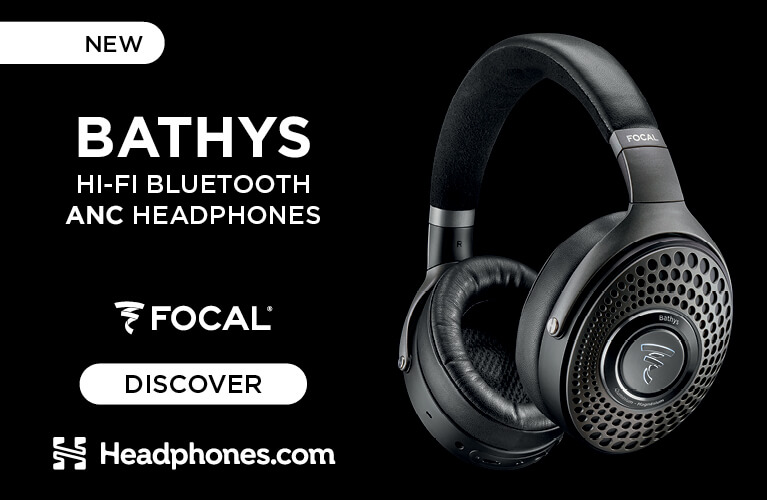I don’t often participate in online audio forums; I have a great outlet here at SoundStage! Solo, and don’t want to invade someone else’s space. But I do read the forums to see what audio enthusiasts think about various products, and about the reviews of those products. While reading online forums can sometimes diminish one’s faith in humanity, I generally like what I see on headphone forums.
To me, the headphone industry, even though it comes out of the two-channel audio industry, has more in common with the home-theater industry. Both came to prominence after the growth of the Internet -- where enthusiasts can easily correspond with experts and researchers, and where unsupportable beliefs often fall under immediate attack and thus never have a chance to become conventional wisdom. In comparison, most of the common beliefs of traditional two-channel audio enthusiasts date back at least to the 1970s, when audio writers could spin all sorts of fantastical tales without worrying that someone might call them out in the comments section.
It makes me glad that back in 2010, I decided to start focusing most of my efforts (and lab gear purchases) on headphones rather than traditional audio systems.

Why am I so often encouraged when I read the comments of headphone enthusiasts? And why do I often despair when I read two-channel audio forums and the comments sections on audiophile websites? I can think of five reasons:
1) Headphone enthusiasts embrace science.
Read headphone forums and you’ll find frequent references to scientific research papers, as well as an understanding and appreciation of what scientists have learned about headphones, and some generally wise and cautious viewpoints about what that research might mean to listeners. Read two-channel audio forums and you’ll almost never see citations of research, except in those rare cases where the research supports the beliefs of two-channel enthusiasts. I was recently thrilled to see various headphone enthusiasts attacking a writer for positing the idea that gear needs not only to be broken in, but to be periodically re-broken in. Sure, you’ll see a few listeners insisting that headphones need 150 hours of break-in, but for the most part, headphone enthusiasts have come to accept that science and logic say otherwise -- something I examined in my article “Why Believing in Headphone Break-In Can Be Harmful.”
2) They demand measurements.
To my knowledge, Inner Fidelity was the first major headphone-specific publication (not counting forums as publications), and its recently retired editor, Tyll Hertsens, considered measurements critical to a comprehensive evaluation of a set of headphones. Because his work coincided with the rise in headphone popularity that started around a decade ago -- and because he did a great job of explaining it -- a standard was set. Where few two-channel enthusiasts evince any interest in or understanding of audio measurements, headphone enthusiasts are so insistent on seeing measurements of headphones that when they can’t find professional measurements of a certain model, they’ll jury-rig a measurement setup and do their own. This is all the more remarkable when you consider that interpreting headphone measurements is far more difficult than interpreting speaker, amplifier, and DAC measurements.
3) They aren’t afraid of EQ.
Experienced headphone enthusiasts know that due to differing head and ear sizes and shapes, they may get a slightly different fit -- and a slightly different sound -- than the next person. Because most of their source devices (i.e., phones and portable players) have EQ built right into their software, many enthusiasts have experimented with it, and have found that dialing bass or treble up or down a few dB can make the sound much more enjoyable and natural without negatively impacting sound quality. (And they can probably find some measurements that will help guide their efforts.) Some have even gravitated to EQ programs designed specifically for headphones, such as Sonarworks. Meanwhile, I haven’t seen a two-channel audio system with real EQ since the days of Cello Music Systems, which ceased operations 18 years ago.
4) They’re more accepting of different viewpoints and tastes.
While it’s almost impossible to visit websites focused on two-channel audio without encountering spats about -- well, almost everything in the world of audio -- you see little of this in the headphone community. I think this may be partly because listeners have different head and ear sizes and shapes, so there’s a general acceptance that the headphones you love might not fit as well or sound as good for someone else as they do for you. Also, most headphone enthusiasts use several different sets of headphones and earphones, of widely varying cost and configuration, so unlike, say, the guy who listens exclusively to one set of tower speakers, they rarely take it as an insult if someone else has a different viewpoint on one of the pieces of gear they own.
5) Music is more important to them.
Of course, there’s no practical way to prove this statement, but think about it. Headphone enthusiasts can listen to their rigs almost anywhere, with no worry about disturbing others, and no need for the ritual of sitting down in their listening chair and keeping their heads in that just-right spot so they get the most focused stereo image and widest soundstage. Thus, it’s highly likely that headphone enthusiasts spend more time listening. They also spend less time fussing. Most headphone listening is more or less plug-and-play, and the gear takes a backseat to the music. You can’t even see the headphones when you’re wearing them!
And this might be the number-one reason why I enjoy headphones so much. My audio obsession began only when I became obsessed with music -- and 40-plus years later, I remain far more captivated by the music than by the gear I use to play it. Unless the headphones or earphones I’m using are really bad or unforgivably uncomfortable, I quickly forget what I’m listening through and focus on what I’m listening to.
. . . Brent Butterworth







